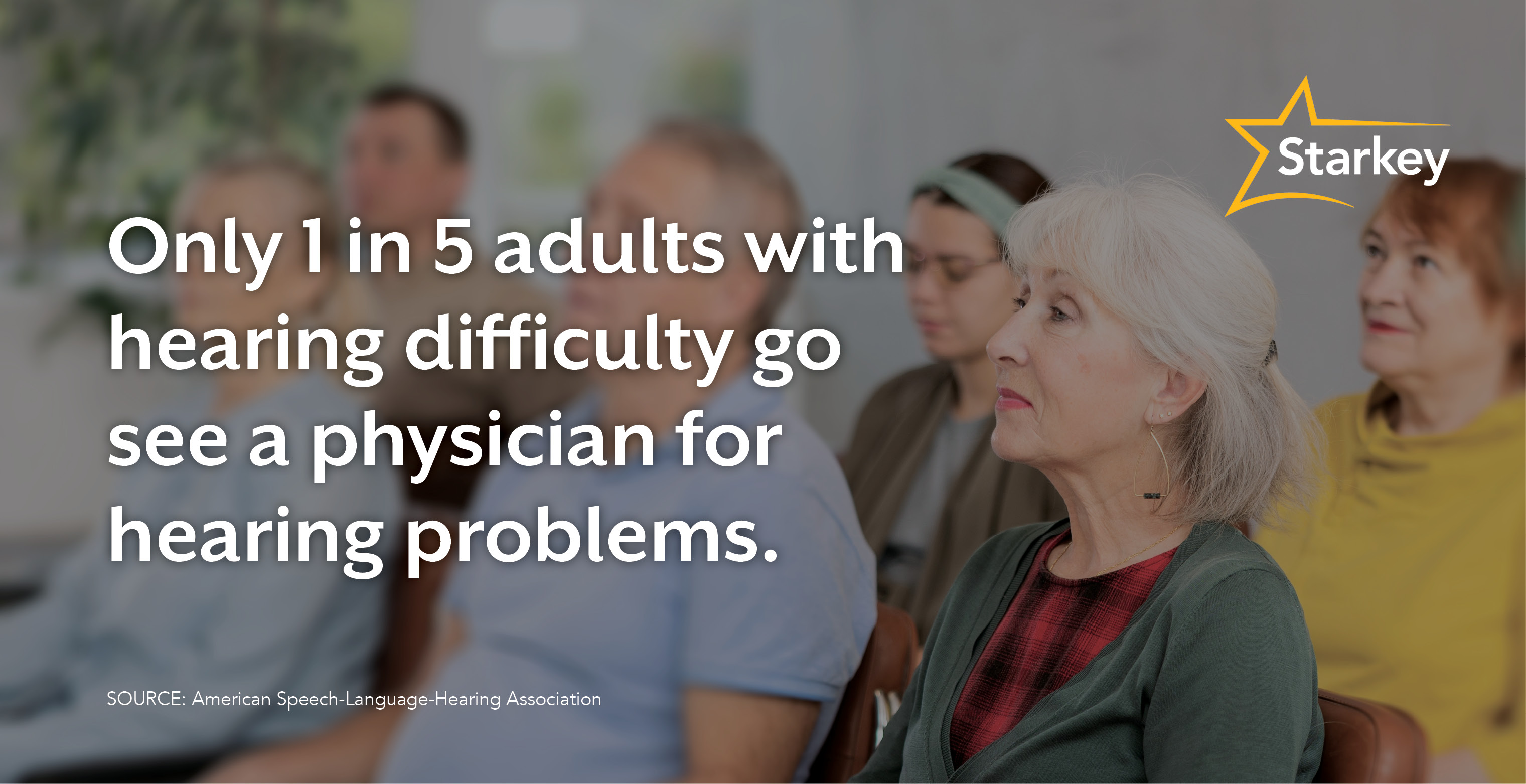Today’s fact reveals that only 20% of people who could benefit from wearing hearing aids actually seek help from a health professional. Are you surprised or not surprised?
If you’re surprised, it may be because you’ve been keeping up with statistics on the impact of untreated hearing loss and are baffled as to why only a minority of people would seek help from a hearing care professional—especially when hearing loss is typically very treatable.
If you’re not surprised, perhaps you are unaware of the detrimental effects linked to untreated hearing loss.
You may even be part of that majority who isn’t pursuing treatment for their hearing loss: If this rings true for you, today’s fact shows you are not alone.
There are many reasons why people may choose not to pursue help with their hearing loss through hearing aids. These may include:
- Stigma
You may be concerned about being perceived as less capable or “old” if you are seen wearing hearing aids. (What stigma? Asks legendary rock musician Huey Lewis.)
- Out-of-date perception
You may be associating the idea of hearing aids with the large, bulky, tan-colored devices of the past. (Guess what? That’s no longer the case.)
- Cost
You may be concerned about the cost of hearing aids. (Good news—if insurance doesn’t cover them, financing is often available and you can also use HSA funds.)
- Unrecognized hearing loss
You may not realize you have hearing loss or don’t believe it’s severe enough to treat. Or, you may have accepted the condition as a part of “growing older” or a “life-could-be-worse” mentality.
Unfortunately, your hearing and overall health could be a lot worse if you avoid treating your hearing loss for any reason. But on a positive note, let’s explore some of the biggest ways treating hearing loss with hearing aids can help protect against impactful health conditions.
Why it’s important to treat your hearing loss
Wearing hearing aids may help you:

Maintain your brain health
Research has proven that wearing hearing aids can reduce the risk of cognitive decline. Moreover, the Lancet Commission on Dementia, Prevention, Intervention and Care named hearing loss the number one modifiable risk factor found to prevent dementia.
Prevent loneliness, isolation, and depression
Wearing hearing aids has been linked to a reduced risk of depression. This finding should come as no surprise, given how the communication support of hearing aids is key to combatting loneliness and social isolation.
According to the National Institute on Aging (NIA), staying more connected to the world around you is essential for reducing the impact of loneliness and isolation, both of which are risk factors for depression. And as we know, better hearing is important for helping us stay social because it makes communication easier and allows us to lead more active lives.

Keep you safe from falls, other hazards
Giving you greater awareness of your surroundings through better hearing, hearing aids have been reported to reduce the risk of falls and the number of hospital visits for people who wear the devices regularly.
Speaking of safety hazards, improved hearing through hearing aids can also help you be more alert to important signals like the smoke detector, oven timer, and sirens.

Help you live longer
The Lancet Healthy Longevity Journal recently published a study revealing that hearing aids may lengthen our lives by nearly 25%. Need we add any more incentives to treat your hearing loss?
Of course we should: Better hearing through hearing aids brings you the delight of never missing a moment. Being able to hear life around you makes even the smallest moments feel bigger—from conversations that go into the wee hours over a home-cooked meal, to that first chorus of birds out your window after a long winter.
With better hearing through hearing aids, the joy of connecting to your world is yours for the embracing.
Treating your hearing loss—the best choice you can make
Bottom line, choosing to treat your hearing loss is choosing health and happiness. So, make this choice today: Reach out to a hearing care professional to have your hearing evaluated and to treat any hearing loss you may have.
Don’t have a hearing care professional? No problem. Simply type your zip code in here and you’ll generate a list of hearing providers near you who you can contact for help.
